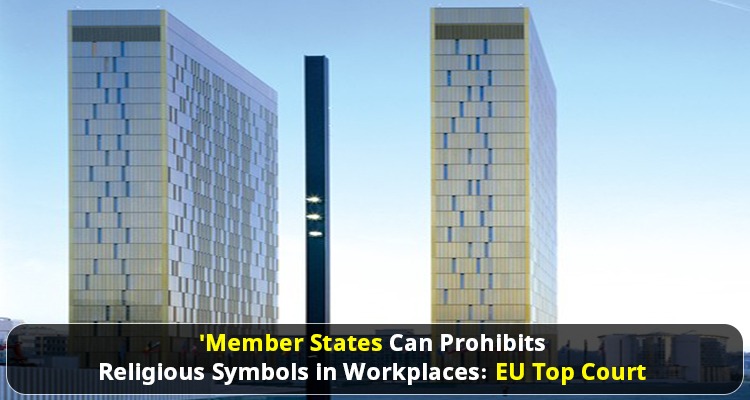
The European Union’s top court has ruled that a public administration has the authority to forbid its staff from visibly displaying any sign indicating “philosophical or religious beliefs” in order to establish a “neutral administrative environment,” according to reports.
The Court of Justice of the European Union (CJEU) stated that national courts should assess whether the measures taken effectively balance freedom of religion with the legitimate objectives supporting such prohibition.
“To establish a completely neutral administrative environment, a public administration is within its rights to prohibit the visible display of any sign revealing philosophical or religious beliefs in the workplace,” stated the top EU court.
The court emphasized that such a rule is non-discriminatory when applied uniformly and without distinction to all staff members of the administration, and it should be limited to what is strictly necessary.
The ruling pertains to a case involving a woman from the municipality of Ans in Belgium, who raised concerns in a local court, asserting that her freedom of religion had been violated. She claimed to be a victim of discrimination after being barred from wearing an Islamic headscarf at her workplace. Following the decision regarding the headscarf, the municipality modified its terms of employment to prohibit all employees from wearing overt signs of ideological or religious affiliation.
A court in Liege sought clarification from the top court on whether the strict neutrality rule imposed by the municipality constituted discrimination contrary to EU law. The court acknowledged that the rule “may be regarded as being objectively justified by a legitimate aim.” However, it noted that an opposing policy permitting the wearing of religious symbols would also be justified.
“Each member state, and any infra-state body within the framework of its competences, has a margin of discretion in designing the neutrality of the public service it aims to promote in the workplace, depending on its own context,” the court asserted. It added that the pursuit of this objective must be consistent and systematic, and the measures adopted to achieve it must be limited to what is strictly necessary. The court emphasized that national courts are responsible for verifying compliance with these requirements.
In October of the previous year, the EU court also ruled that internal laws implemented by an employer, which prohibit the visible display of all religious, philosophical, or spiritual signs at work, do not constitute direct discrimination. This decision arose from a dispute between a Muslim woman and a Belgian company regarding its headscarf policy.




